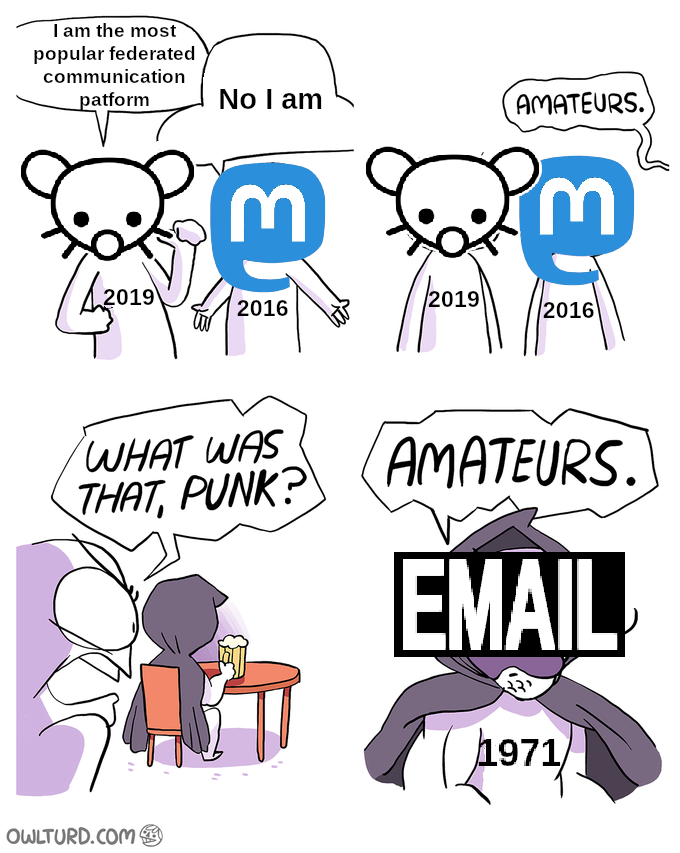this post was submitted on 26 Oct 2024
1067 points (97.1% liked)
Fediverse
32697 readers
482 users here now
A community to talk about the Fediverse and all it's related services using ActivityPub (Mastodon, Lemmy, KBin, etc).
If you wanted to get help with moderating your own community then head over to !moderators@lemmy.world!
Rules
- Posts must be on topic.
- Be respectful of others.
- Cite the sources used for graphs and other statistics.
- Follow the general Lemmy.world rules.
Learn more at these websites: Join The Fediverse Wiki, Fediverse.info, Wikipedia Page, The Federation Info (Stats), FediDB (Stats), Sub Rehab (Reddit Migration)
founded 2 years ago
MODERATORS
you are viewing a single comment's thread
view the rest of the comments
view the rest of the comments

Firstly, that would be awesome, but imagine the spam.
Secondly, I'm a proponent of thorn, I get it. But ð was almost exclusively used medially and terminally in English. In addition it didn't last nearly as long, and is much less recognizable as a letter in English. Þ was used initially, and is far more commonly seen in English. I get that you're using them for voiced and unvoiced like in Icelandic, but that wasn't so much the convention in English. I'm not against it, I'm asking to be sold on it. Lol. Sell me on why I need eth instead of just using thorn for both voiced and unvoiced, please? I'm willing to be converted.
And third, I'm having trouble finding it, was eth on it's own ever used as a single letter spelling of the, or is that your own addition? I like it. When writing (by hand) notes or things only I'll be reading, I use the þe shorthand that looks like an e cradled in the crook of a y, like was common in colonial America.